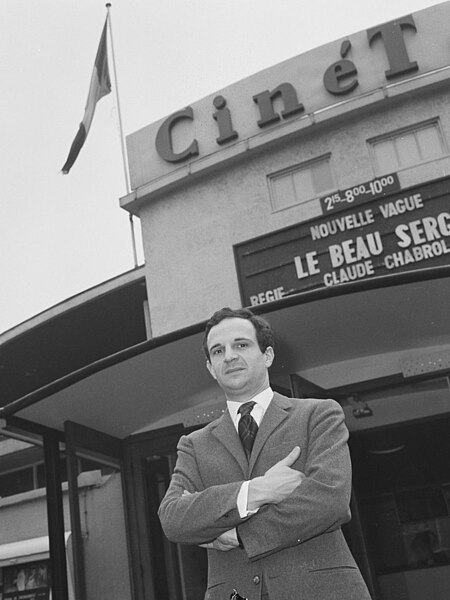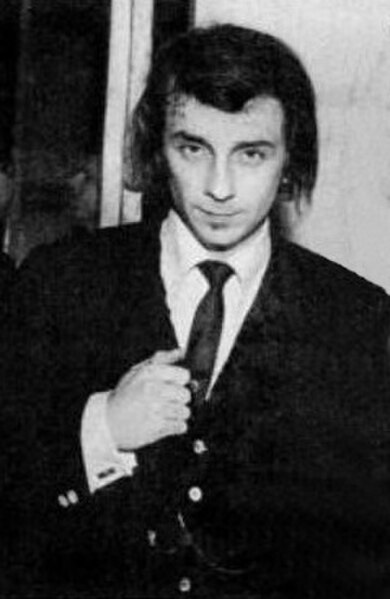An auteur is an artist with a distinctive approach, usually a film director whose filmmaking control is so unbounded and personal that the director is likened to the "author" of the film, thus manifesting the director's unique style or thematic focus. As an unnamed value, auteurism originated in French film criticism of the late 1940s, and derives from the critical approach of André Bazin and Alexandre Astruc, whereas American critic Andrew Sarris in 1962 called it auteur theory. Yet the concept first appeared in French in 1955 when director François Truffaut termed it policy of the authors, and interpreted the films of some directors, like Alfred Hitchcock, as a body revealing recurring themes and preoccupations.
Film director and critic François Truffaut in 1965
Record producer Phil Spector in 1964
In legal discourse, an author is the creator of an original work, whether that work is in written, graphic, or recorded medium. The creation of such a work is an act of authorship. Thus, a sculptor, painter, or composer, is an author of their respective sculptures, paintings, or compositions, even though in common parlance, an author is often thought of as the writer of a book, article, play, or other written work. In the case of a work for hire, the employer or commissioning party is considered the author of the work, even if they did not write or otherwise create the work, but merely instructed another individual to do so.
James Joyce was a prominent Irish novelist, poet and literary critic during the 20th century.



